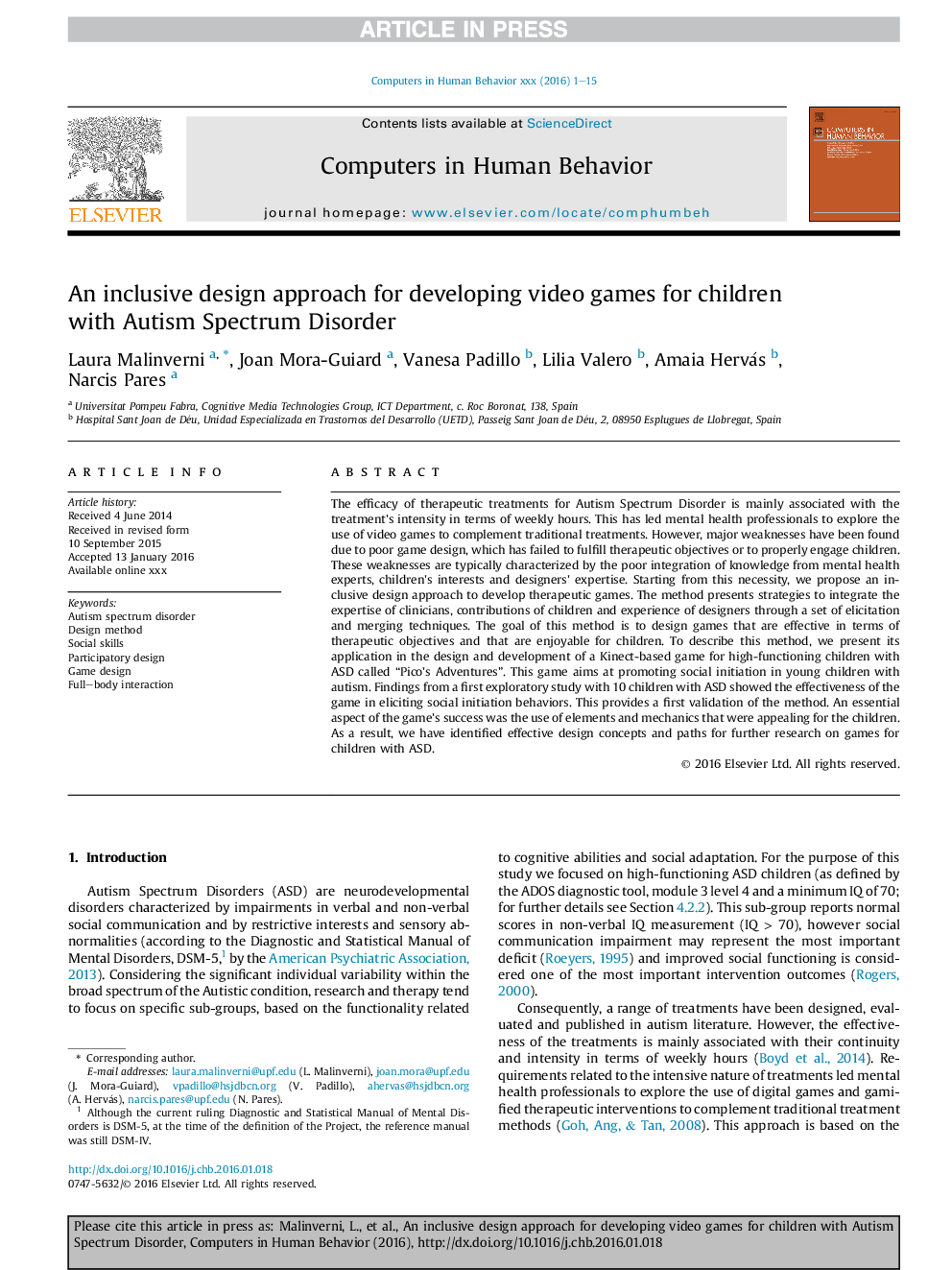| Article ID | Journal | Published Year | Pages | File Type |
|---|---|---|---|---|
| 4937387 | Computers in Human Behavior | 2017 | 15 Pages |
Abstract
The efficacy of therapeutic treatments for Autism Spectrum Disorder is mainly associated with the treatment's intensity in terms of weekly hours. This has led mental health professionals to explore the use of video games to complement traditional treatments. However, major weaknesses have been found due to poor game design, which has failed to fulfill therapeutic objectives or to properly engage children. These weaknesses are typically characterized by the poor integration of knowledge from mental health experts, children's interests and designers' expertise. Starting from this necessity, we propose an inclusive design approach to develop therapeutic games. The method presents strategies to integrate the expertise of clinicians, contributions of children and experience of designers through a set of elicitation and merging techniques. The goal of this method is to design games that are effective in terms of therapeutic objectives and that are enjoyable for children. To describe this method, we present its application in the design and development of a Kinect-based game for high-functioning children with ASD called “Pico's Adventures”. This game aims at promoting social initiation in young children with autism. Findings from a first exploratory study with 10 children with ASD showed the effectiveness of the game in eliciting social initiation behaviors. This provides a first validation of the method. An essential aspect of the game's success was the use of elements and mechanics that were appealing for the children. As a result, we have identified effective design concepts and paths for further research on games for children with ASD.
Related Topics
Physical Sciences and Engineering
Computer Science
Computer Science Applications
Authors
Laura Malinverni, Joan Mora-Guiard, Vanesa Padillo, Lilia Valero, Amaia Hervás, Narcis Pares,
